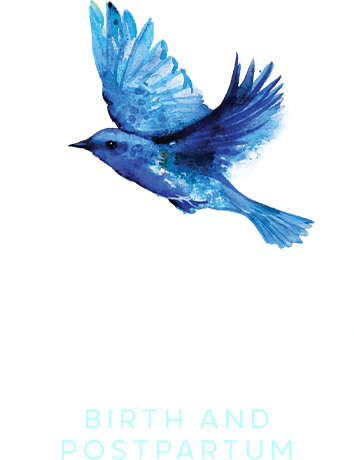The term “postpartum” is commonly associated with circumstances and conditions that happen to new mothers after childbirth. For instance, “postpartum depression” and “postpartum anxiety.”
Postpartum is technically defined as “the period of time following childbirth,” without a specific length of time assigned to it. The medical community generally says that the postpartum period lasts for six weeks after birth.
Contrary to what we’ve been taught, the postpartum period marks a beginning to a new journey, so it isn’t temporary at all. You don’t “stop” being postpartum after six to eight weeks at your postpartum checkup.
Pregnancy and childbirth has an everlasting effect on your body and your life, so in truth, the postpartum period never ends. You are postpartum ten weeks after pregnancy; you are also postpartum ten years after pregnancy.
How Society’s Thinking About the Postpartum Period Has Changed
For centuries, women all over the world collectively nurtured new mothers. It was understood that the first 40 days postpartum were of the utmost importance. The care that women received during that time would affect their life-long health and wellbeing.
Over the years, in Western culture, we’ve strayed away from the traditional postpartum practices that healed and empowered women. Instead, we began to normalize the deterioration of women’s mental, physical, spiritual, and emotional health.
Our commercialized society decided that the higher priority was getting mothers and fathers back to work as soon as possible after childbirth. We’ve convinced ourselves that the impairment to women’s physical and emotional healing that comes from this is simply inevitable.
In doing so, new parents have deeply struggled with the transition into parenthood —a struggle we believe could’ve been avoided or more easily navigated with the right support.
How We Can Repair the Postpartum Period
How do we get back to a place where we place a family’s well-being above their work schedule and other duties? How do we regain the respect for new mothers that we have lost as a society?
Ultimately, we need to change our practices and strategies. We need to treat the initial weeks postpartum as a revered and irreplaceable time in life rather than a time that we want to get over with as quickly as possible.
First, the initial weeks postpartum should be treated as a time of rest. Both parents should have time at home after their child’s birth, away from the distractions and stresses of the modern world. This allows a mother to rest and heal while her partner cares for her, and it gives them both a chance to bond with their baby during this important time. Second, we need to acknowledge that six weeks after childbirth, women don’t simply “go back” to being the person they were before pregnancy. Having a child is a change that will affect a woman for the rest of her life. These changes should be accepted, respected, and honored not hidden or suppressed.
Finally, we need to do away with the “super mom” culture. Women today are pressured to have both a family and a career and to somehow make both of them their top priorities. Instead, we should normalize women prioritizing their health and getting the care they need.


